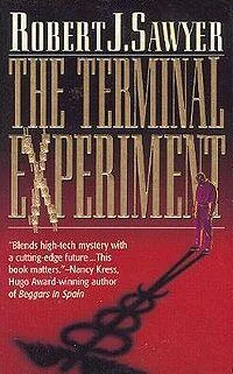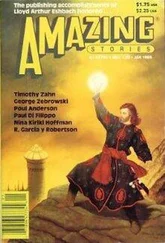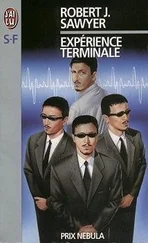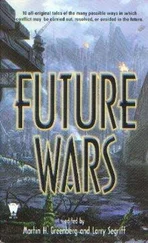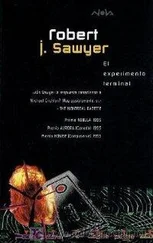Peter was quiet for several seconds. “I don’t know. The Cathy I know — the one I thought I knew, anyway — wouldn’t have done anything like that.”
“How well do we really know anyone, though?”
Peter nodded again. “Exactly. Forgive me for using you as an example, but—”
“People hate it when you do that, you know.”
“What?”
“Use them as an example. You’ve got this tendency to use whoever is at hand as a case in point. ‘Forgive me for using you as an example, Bertha, but when someone is really fat—’”
“Oh, come on. I never say stuff like that. You know that.”
“I’m exaggerating for comedic effect; another trait of ours not everyone finds endearing. But you know what I mean: you’ll take a hypothetical conversation, and draw people into it as examples: ‘Take your own case, Jeff. Remember when your son was arrested for shoplifting? I wonder how tough you’d want to be on young offenders in that situation?’”
“I do that to make a point.”
“I know. People hate that.”
“I guess I knew that,” said Peter. “Anyway” — he said the word forcefully, taking back control of the conversation — “to use what Sarkar and I are doing as an example: we’ve created models of my mind. Models, that’s all. Simulacra that seem to operate the same way as the original. But when a real person builds a relationship with somebody else—”
“Are they in fact really having a relationship with that person, or just with a model — an image, an ideal — that they’ve built up in their own mind?”
“Uh, yeah. That’s what I was going to say.”
“Of course. Sorry, Pete, but it’s going to be hard for you to dazzle yourself with your own brilliance.” The voice chip laughed.
Peter was a bit irritated. “Well, it’s a valid question,” he said. “Did I ever really know her?”
“In a broad sense, you’re right: we probably don’t ever really know anyone. But, still, Cathy is the person we know best in the entire world. We know her better than Sarkar, better than Mom or Dad.”
“But, then, how could she do this?”
“Well, she’s never been as strong-willed as we are. That asshole Hans obviously pressured her.”
“But she should have resisted that pressure.”
“Granted. But she didn’t. Now, what do we do about that? Do we give up on the most important relationship in our lives because of it? Even setting that aside, on a more pragmatic level, do you really want to go back to looking for a mate? Dating? Christ, what a pain in the ass that would be.”
“It sounds like you’re advocating a marriage of convenience.”
“Maybe all marriages are that to some degree. Certainly you’ve speculated that Mom and Dad stayed together simply because it was the path of least resistance.”
“But they never had what Cathy and I had.”
“Perhaps. Anyway, you still haven’t answered my question. We binary guys like simple yes-or-no answers.”
Peter was quiet for a moment. “You mean whether I still love her?” He sighed. “I don’t know.”
“You won’t be able to decide on a course of action until you resolve that question.”
“It’s not that simple. Even if I still love her, I couldn’t take this happening again. I haven’t slept properly since she told me. I think about it constantly. Anything will remind me of it. I see her car in the garage; that reminds me that she gave Hans a lift. I see the couch in our living room; that’s where she told me about it. I hear the word ‘adultery’ or ‘affair’ on TV — Christ, I never realized how often people use those words — and that reminds me of it.” Peter leaned way back in the chair. “I can’t put this behind me until I know that it will always be behind us. She didn’t just do it once, after all. She did it three times — three times over a period of months. Maybe she thought each time was the last.”
“Perhaps,” said the sim. “Remember when we had our tonsils out?”
“What you mean ‘we,’ white man? I’m the one with the scars.”
“Whatever. The point is, we had them out when we were twenty-two. Very late in life for something like that. But we kept getting sore throats and tonsillitis. Finally ole Doc DiMaio said enough already with treating the symptoms. Let’s do something about the cause.”
Peter’s voice was strained. “But what if — what if — what if I’m the cause of Cathy’s infidelity? Remember that lunch with Colin Godoyo? He said his cheating on his wife was a cry for help.”
“Please, Peter. You and I both know that’s bullshit.”
“I’m not sure we each get a vote.”
“Regardless, I’m sure Cathy knows it’s bullshit.”
“I hope so.”
“You and Cathy had a good marriage — you know that. It didn’t rot away from within; it was attacked from outside.”
“I suppose,” said Peter, “but I’ve been mulling it over a lot — looking for any clue that we’d blown it somehow.”
“And did you find any?” asked the sim.
“No.”
“Of course not. You always tried to be a good husband — and Cathy was a good wife, too. Both of you worked at making the marriage a success. You take an interest in each other’s work. You’re supportive of each other’s dreams. And you talk freely and openly about everything.”
“Still,” said Peter, “I wish I could be sure.” He paused. “You remember Perry Mason ? Not the original TV series with Raymond Burr, but the short-lived remake they made in the 1970s. Remember it? They repeated it on A E in the late nineties. Harry Guardino played Hamilton Burger. Remember that version?”
The sim paused for a moment. “Yes. It wasn’t very good.”
“In point of fact, it stank,” said Peter. “But you remember it?”
“Yes.”
“Remember the guy who played Perry Mason?”
“Sure. It was Robert Culp.”
“Can you recall him? Picture him in the courtroom? Do you remember him in that series?”
“Yes.”
Peter spread his arms. “Robert Culp never played Perry Mason. Monte Markham did.”
“Really?”
“Yes. I’d thought it was Culp, too, until I saw a story about Markham in yesterday’s Star ; he’s in town doing Twelve Angry Men at the Royal Alex. But you know the difference between those two actors, Culp and Markham?”
“Sure,” said the sim. “Culp was in I Spy and Greatest American Hero . And, let’s see, in Bob and Carol and Ted and Alice . Great actor.”
“And Markham?”
“A solid character actor; always liked him. Never had a successful series, but wasn’t he in Dallas for a year or so? And, round ’bout 2000, he was in that awful sitcom with James Carey.”
“Right,” said Peter. “Don’t you see? We both had a memory — a good, solid memory — of Robert Culp playing a role that had really been played by Monte Markham. Right now, of course, you’re rewriting those memories, and now I’m sure you can see Markham in the role of Mason. That’s the way all memory works: we save only enough information to reconstruct events later. We save the deltas — we remember base pieces of information, and note changes. Then when we need to summon up a memory, we reconstruct it — and often do so inaccurately.”
“So what’s your point?” said the sim.
“My point, dear brother, is this: how accurate are our memories? We recall all the events leading up to Cathy’s affair, and find ourselves free from blame. Everything hangs together; everything is consistent. But is it accurate? In some way we’ve chosen not to remember, in some moment that we’ve edited out, by some actions that died in the neural cutting room, did we push her into the arms of another man?”
Читать дальше
